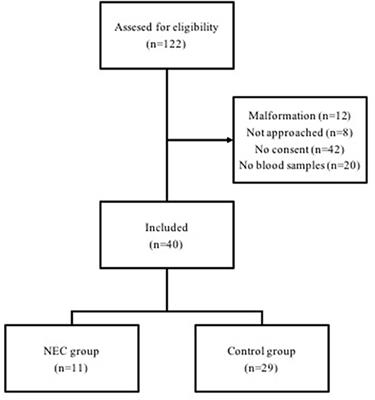EDITORIAL
Published on 17 Feb 2022
Editorial: Intestinal Microbiota in the Pathogenesis and Management of Necrotizing Enterocolitis in Preterm Infants
doi 10.3389/fped.2022.837925
- 1,786 views
7,653
Total downloads
28k
Total views and downloads
Select the journal/section where you want your idea to be submitted:
EDITORIAL
Published on 17 Feb 2022
CASE REPORT
Published on 02 Dec 2021

ORIGINAL RESEARCH
Published on 26 Nov 2021

ORIGINAL RESEARCH
Published on 28 Oct 2021

ORIGINAL RESEARCH
Published on 22 Oct 2021

ORIGINAL RESEARCH
Published on 05 Oct 2021

ORIGINAL RESEARCH
Published on 30 Aug 2021

ORIGINAL RESEARCH
Published on 31 May 2021

ORIGINAL RESEARCH
Published on 03 May 2021

ORIGINAL RESEARCH
Published on 26 Apr 2021

ORIGINAL RESEARCH
Published on 10 Mar 2021

